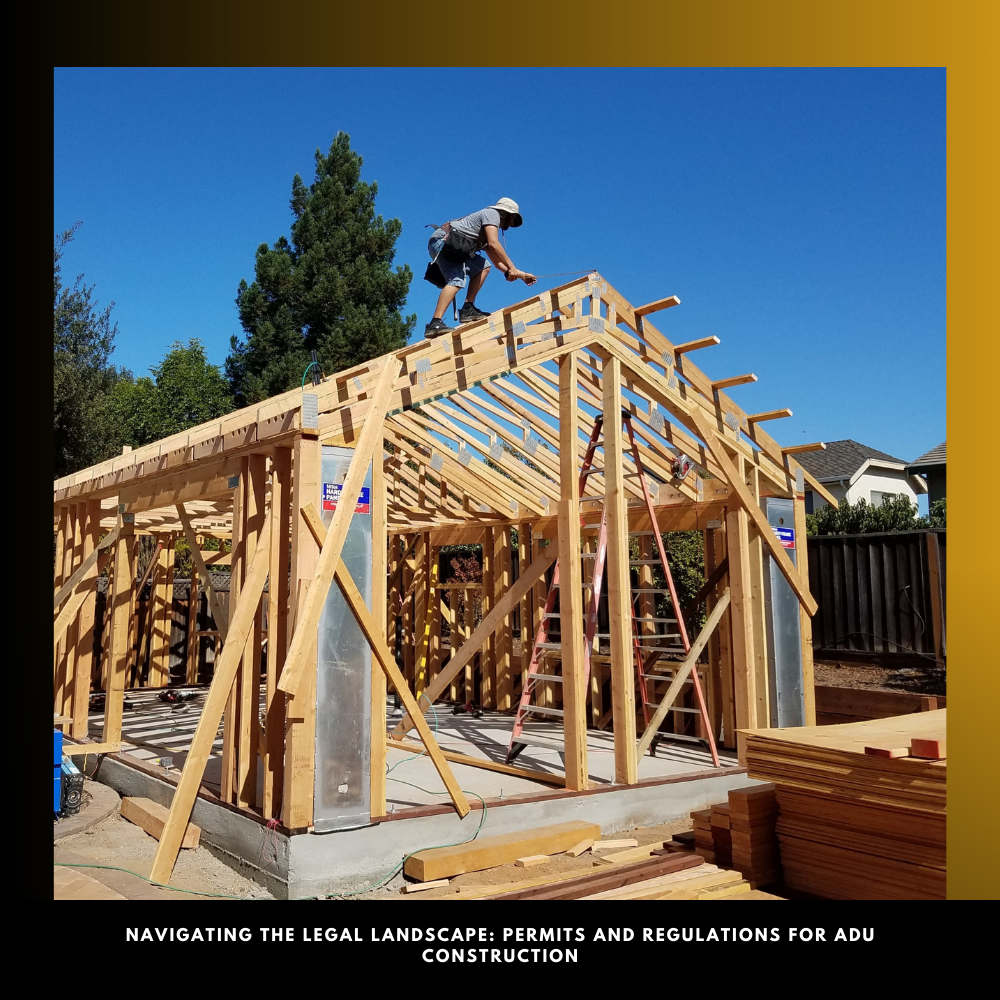Building an Accessory Dwelling Unit (ADU) can be a valuable addition to your property, but it’s essential to navigate the legal landscape carefully. Understanding permits and regulations is crucial to ensure your ADU construction complies with local laws and codes. Here’s a guide to help you through the process.
Understanding Zoning Laws
Zoning laws are the first step in determining whether you can build an ADU on your property. These laws dictate the types of structures allowed in different areas and their specific requirements. Check with your local planning department to understand the zoning regulations for your area. Some zones may have restrictions on the size, height, and location of ADUs. Being aware of these rules helps you plan your project without facing legal hurdles.
Securing Building Permits
Obtaining the necessary building permits is a critical part of ADU construction. Permits ensure that your project meets safety and building standards. Typically, you will need a building permit, electrical permit, plumbing permit, and sometimes a mechanical permit. The application process usually involves submitting detailed plans and specifications of your ADU. It’s essential to factor in the time and cost of securing these permits into your project timeline and budget. Working with a professional contractor can simplify this process, as they are often familiar with local permitting requirements.
Adhering to Building Codes
Building codes are designed to ensure the safety and integrity of structures. When constructing an ADU, you must comply with local building codes, which cover aspects like structural integrity, electrical systems, plumbing, and fire safety. These codes can vary significantly by location, so it’s important to review them thoroughly or consult with a knowledgeable contractor.
Addressing Utility Connections
Connecting utilities to your ADU is another important consideration. This includes electricity, water, gas, and sewage systems. Depending on the location of your property and the existing infrastructure, you may need to upgrade or extend utility lines. Each utility connection typically requires a separate permit and inspection.
Navigating the legal landscape for ADU construction involves understanding zoning laws, securing building permits, adhering to building codes, addressing utility connections, and considering impact fees. By thoroughly researching and preparing for these legal requirements, you can ensure a smooth and compliant ADU construction process. Consulting with professionals who are experienced in local regulations can also help you avoid pitfalls and streamline your project.
Learn more about ADU:
ADU Design Ideas: Innovative Approaches to Maximize Your Space

